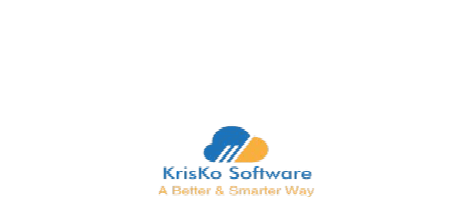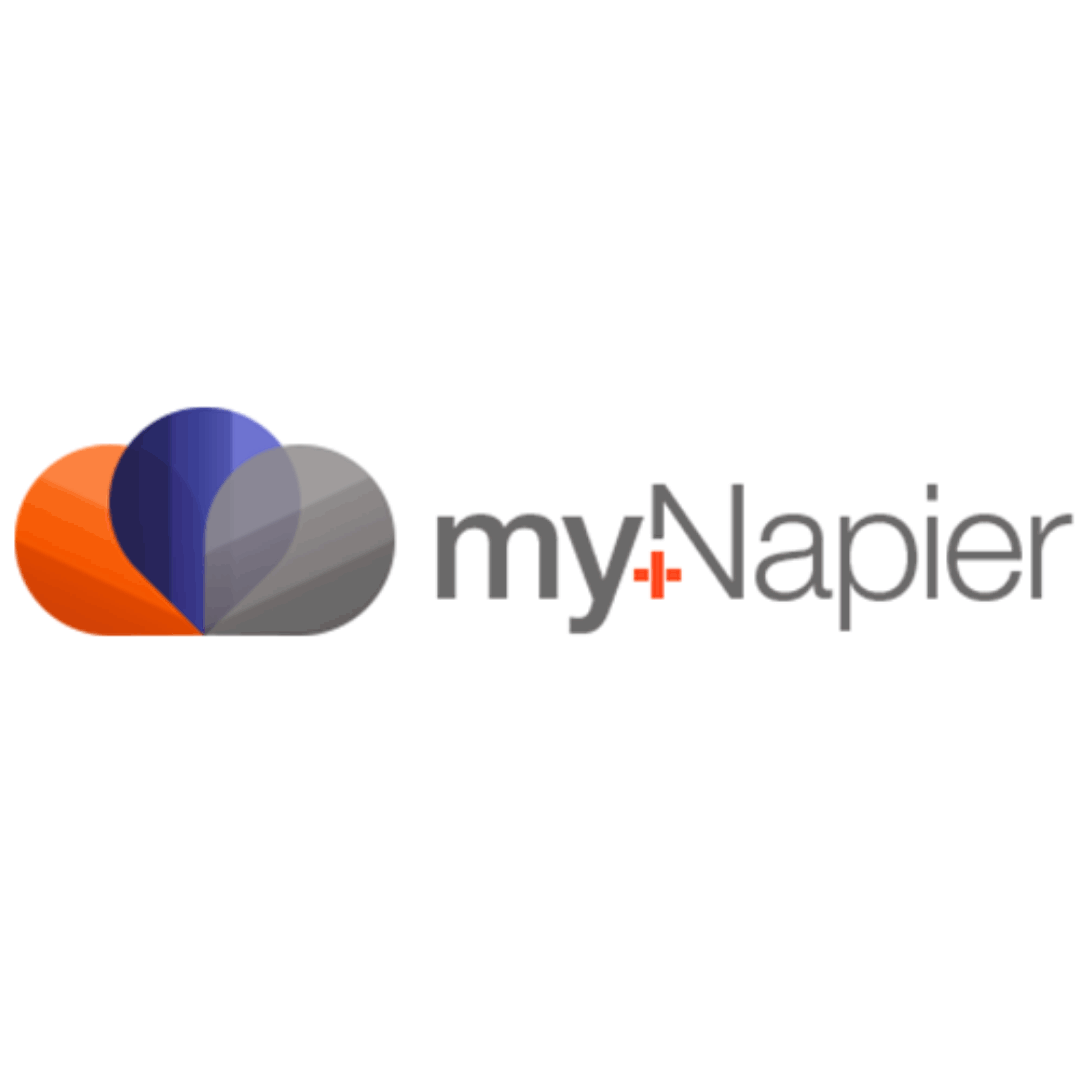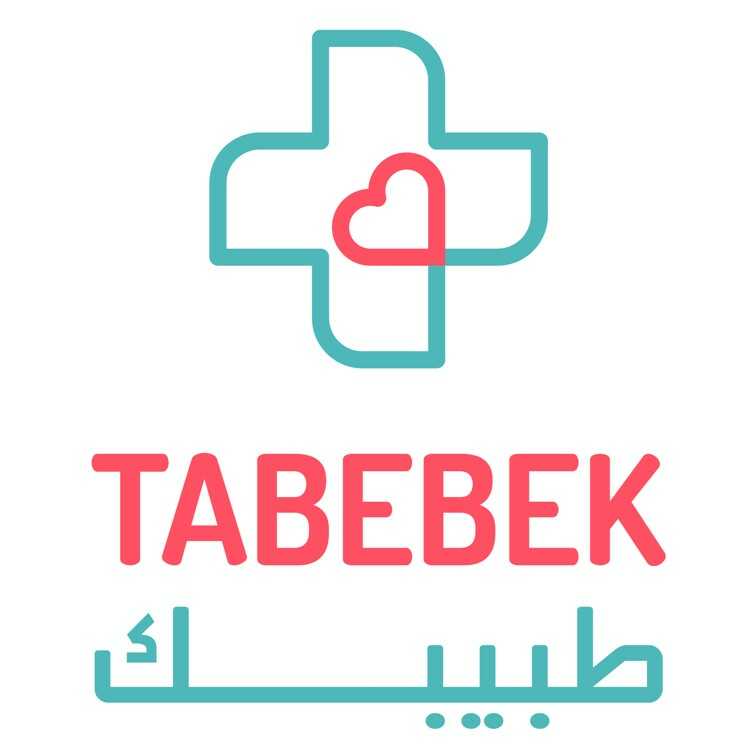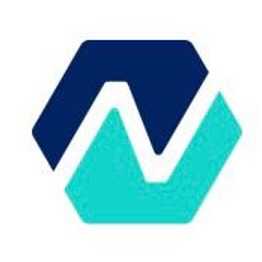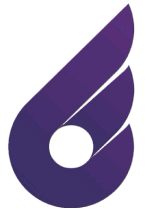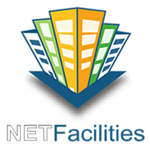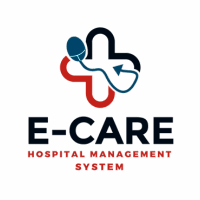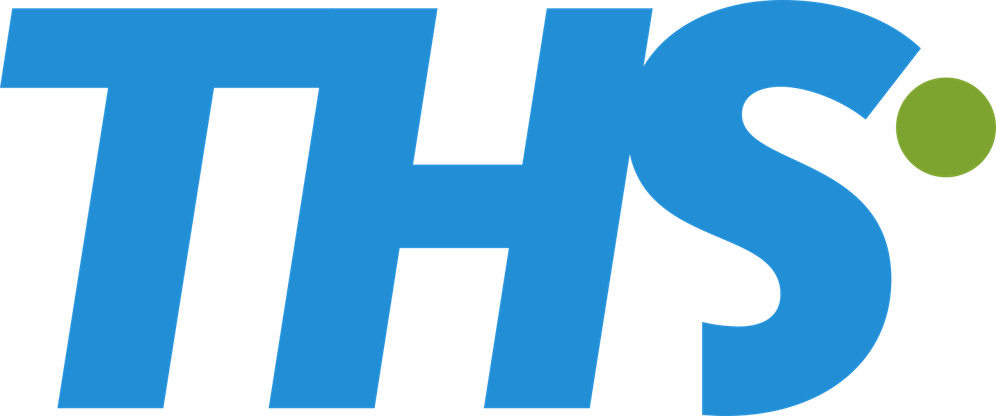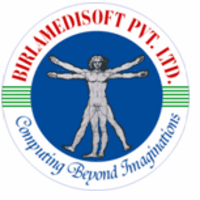Yes, hospital ERP software is designed to be available from a variety of devices and platforms. It is accessible via desktop computers, laptops, tablets, and smartphones running any operating system, including Windows, iOS, or Android. This allows for the convenience of accessing patient records, scheduling appointments, and controlling inventories from anywhere at any time. The software can only be accessed through a secure login, which protects critical medical information.
List of 20 Best Hospital ERP Software
SMARTHMS is a solution for advanced healthcare management. Our dedicated team of professionals is dedicated to delivering top-notch, customizable Hospital Management System tailored for your institution. With our exceptional on-site and off-shore met...Read More SMARTHMS
KrisKoHIMS, a enterprise software designed by KKS (KrisKo Software). Our platform harnesses the power of advanced software, databases, and internet tools to deliver bespoke solutions for businesses. Our expert team excels in crafting tailor-made soft...Read More KrisKoHIMS
Presenting Cyberiyum ERP is aand blockchain-based software designed for businesses of any scale. This advanced solution is fully customizable to suit your companys specific requirements, providing exceptional functionality and productivity. With Cybe...Read More Cyberiyum ERP
myNapier is aHospital Information System designed by Napier Healthcare in collaboration with Microsoft. This state-of-the-art system operates on the cloud and provides hospitals with a customizable platform for streamlined management and improved pat...Read More myNapier
Tabebek offers a complete solution for practitioners to effectively manage patient care. With our powerful platform, practitioners can easily schedule appointments, maintain confidential patient records, and process billing and insurance claims. Our...Read More Tabebek
Nuvertos, the premier healthcare software solution that revolutionizes the way you manage and deliver healthcare services. Backed by over 10 years of industry expertise, we are dedicated to streamlining and modernizing all aspects of healthcare techn...Read More Nuvertos
CyrusBiz is a software solution for your business needs. Our innovative and versatile software can be accessed across multiple platforms - desktop, web, and mobile app. With our easy-to-use modular system, you can fully customize your workflow in jus...Read More CyrusBiz
Hospedia HIMS is a management system designed for hospitals. This versatile software is accessible on various devices, including mobile, PC, and iPad, and is compatible with popular operating systems like Chrome, Safari, and Internet Explorer. With i...Read More Hospedia HIMS
Easy HMS is the EMR/EHR software that revolutionizes healthcare documentation. By seamlessly merging patient records, medical histories, diagnoses, treatments, and billing processes into one easy-to-use digital platform, Easy HMS streamlines and enha...Read More Easy HMS
Suvarna-HIS: a comprehensive healthcare information system that simplifies patient management, billing, and reporting. Its user-friendly interface promotes easy adoption, while robust data security measures ensure the safety of patient information. T...Read More Suvarna-HIS
NetFacilities is a maintenance management solution, designed to streamline your maintenance processes. Our comprehensive suite includes intuitive modules and an automated system for effortless tracking and scheduling of tasks. With a simple click, yo...Read More NetFacilities
Electra HMIS is your comprehensive solution for enhancing and optimizing hospital management. With its advanced capabilities, this software simplifies and improves all aspects of hospital operations, ranging from patient records and appointments to i...Read More ACGIL Hospital Management
Attune Practice Management is a software for maximizing your clinics efficiency, profitability, and patient care. With its intuitive tools and flawless integration, this user-friendly solution streamlines administrative tasks and empowers healthcare...Read More Attune Practice Management
E Care HMS is a Hospital Management System (HMS) designed to enhance healthcare processes and elevate patient services. Our integrated software effectively handles patient data and billing, providing a complete solution for modern medical facilities...Read More E Care HMS
SYNTH MED solution for digitally revolutionizing your university and hospital operations. Experience enhanced patient care with our advanced suite, featuring Telemedicine for extended reach and PACS for streamlined radiology. Stay ahead of the dynami...Read More SYNTH MED
EasyShifts is ascheduling software designed to simplify shift management. Easily fill open shifts, monitor overtime, and enhance communication with instant notifications. Its intuitive interface saves time and money, boosts employee satisfaction, and...Read More EasyShifts
ALTEN Calsoft Labs, a prominent player in digital engineering and transformation, delivers top-notch services in connected experiences, product engineering, and managed IT solutions. Our focus areas include healthcare, semiconductors, and home automa...Read More ALTEN Calsoft Labs
Quanta WebHIMS, our all-in-one hospital management software designed to streamline administrative tasks. With a user-friendly interface, it efficiently manages medical administration, finance billing, and other related services. Say goodbye to paperw...Read More Quanta WebHIMS
IceApple is a software designed to streamline and enhance business operations, leading to improved efficiency and valuable data-driven insights. Its user-friendly interface, advanced analysis capabilities, and seamless integration make it a crucial t...Read More iceApple
GALAXY RIS is a cloud-based Radiology Information System software. Created to streamline and optimize radiology operations in hospitals and healthcare facilities, GALAXY offers a simple and intuitive interface, enabling easy access from anywhere. Say...Read More GALAXY RIS
Learn More About Hospital ERP Software
- What Is Hospital ERP Software?
- What Are The Recent Trends In Hospital ERP Software?
- Benefits Of Using Hospital ERP Software
- Important Factors To Consider While Purchasing Hospital ERP Software?
- What Are The Key Features To Look For In Hospital ERP Software?
- Why Do Businesses Need Hospital ERP Software?
- How Much Time Is Required To Implement Hospital ERP Software?
- What Is The Level Of Customization Available In Hospital ERP Software?
- Which Industries Can Benefit The Most From Hospital ERP Software?
- Conclusion
What Is Hospital ERP Software?
Hospital ERP software is a comprehensive system that streamlines and automates the operations of a hospital or medical facility. It integrates key aspects of enterprise resource planning (ERP) systems with modules and functionality designed exclusively for the healthcare industry. This robust software offers healthcare institutions a single platform to manage all administrative, financial, clinical, and operational activities.
The primary goal of hospital ERP software is to increase efficiency, save costs, and improve patient care quality. It enables hospitals to digitize and integrate their operations, leading to improved communication, cooperation, and data exchange among departments and stakeholders. This leads to a more efficient workflow, enhanced decision-making, and, ultimately, better patient outcomes.
Hospital ERP software often comprises modules for patient registration, appointment scheduling, medical billing, electronic health records (EHR), inventory management, and human resource management. Some advanced options include telemedicine, remote patient monitoring, and predictive analytics. One of the primary advantages of Hospital ERP software is the ability to consolidate and automate crucial activities.
This minimizes manual data entry, decreases errors, and frees up medical staff time to focus on higher-value duties. Furthermore, the software may provide real-time reports and insights, offering healthcare administrators a better understanding of their operations and allowing them to make data-driven decisions. When shopping for Hospital ERP software, you must evaluate your healthcare facility's individual demands and requirements.
Look for a solution that has a wide range of capabilities, is easy to use, and can be seamlessly connected with your existing systems. It should also comply with applicable healthcare legislation, such as HIPAA and ICD-10. Investing in Hospital ERP software can help your firm increase the efficiency, accuracy, and quality of its healthcare services. With the proper technology, you can streamline your procedures, cut expenses, and ultimately improve patient care.
What Are The Recent Trends In Hospital ERP Software?
In recent years, the healthcare business has undergone a dramatic transition toward digitalization and automation. This trend has also affected hospital management systems, resulting in the development of Hospital ERP software. These systems connect a variety of hospital procedures and departments, such as patient management, financial administration, inventory control, and human resource management.
Buyers should be aware of the following recent trends in hospital ERP software:
1. Cloud-Based Solutions: One of the most important trends in Hospital ERP software is the use of cloud-based solutions. With the rising demand for mobility and accessibility, many hospitals are transitioning to cloud-based systems that allow data to be accessed and managed remotely from any device.
2. Advanced Analytics And Data Visualization: Hospital ERP software now includes advanced analytics and data visualization features. These characteristics enable better decision-making based on real-time insights and data analysis, hence increasing overall efficiency and productivity.
3. Integration With Mobile Devices: As hospitals implement Bring Your Own Device (BYOD) policies, integrating mobile devices with Hospital ERP software has become critical. This enables hospital workers to access information and complete activities using their mobile devices, resulting in improved communication and teamwork.
4. Artificial Intelligence (AI) And Machine Learning (ML) Capabilities: Hospital ERP software now includes AI and ML capabilities, allowing for tasks such as automated appointment scheduling, patient triage, and data analysis. This not only saves time, but also lowers the likelihood of errors.
5. Interoperability And Integration With Other Healthcare Systems: Hospital ERP software is increasingly being built to be interoperable and seamlessly integrated with other healthcare systems, such as electronic health records (EHR) and medical devices. This enables a more complete and integrated approach to patient treatment.
Benefits Of Using Hospital ERP Software
Hospital ERP (Enterprise Resource Planning) software is a strong tool for streamlining and integrating a variety of hospital activities, including patient information administration, inventory control, and financial management. It is specifically built to meet the specialized needs of healthcare institutions and has become an absolute necessity for modern hospitals.
Here are the benefits of utilizing hospital ERP software so you can make an informed decision for your facility.
1. Improved Efficiency And Productivity: One of the primary advantages of utilizing hospital ERP software is its ability to increase a hospital's overall efficiency and productivity. With all data and procedures integrated into a single system, jobs may be accomplished more quickly and precisely, decreasing staff workload. This, in turn, results in increased productivity and a more efficient workflow.
2. Comprehensive Patient Management: Managing patient information and appointments can be a difficult undertaking for hospitals. Hospital ERP software stores all patient-related information in a consolidated database, making it easier for staff to access and manage. This contains your medical history, treatment plans, billing information, and more. As a result, patient care improves and errors decrease.
3. Improved Financial Management: Hospital ERP software offers a real-time view of a hospital's financial position, making it easier to manage income, expenses, and cash flow. It streamlines the invoicing process, eliminates paperwork, and improves the accuracy of financial information. This enables hospitals to detect possible cost savings and make good financial decisions.
4. Inventory Management: Hospitals maintain a vast inventory of medical supplies and equipment, which can be difficult to track and manage manually. Inventory management can be automated using hospital ERP software, which includes stock tracking, purchase orders, and reorders. This ensures that hospitals have enough supplies on hand, lowering the likelihood of stockouts.
5. Improved Data Protection: Patient data protection is a top priority for hospitals. Advanced security mechanisms are built into hospital ERP software to prevent unauthorized access to critical patient information. It also provides data backup and recovery solutions to help prevent data loss and maintain patient confidentiality.
6. Better Decision Making: By providing real-time access to correct data, hospital ERP software enables management to make informed decisions. This enables hospitals to discover areas for improvement, optimise budget allocation, and improve patient care. As a result, hospitals may improve their offerings and remain competitive.
Important Factors To Consider While Purchasing Hospital ERP Software?
When it comes to choosing Hospital ERP software, several essential considerations must be considered to ensure that you make the best option for your firm.
Here are some crucial elements to consider while assessing various software options:
1. Scalability: As your hospital expands and evolves, your ERP system should be able to keep up. This implies it should be able to handle an expanding number of patients, departments, and users while maintaining performance and usefulness.
2. Customization: No two hospitals are alike, thus your ERP system should be fully configurable to match your specific demands and workflows. Make careful to check whether the software allows for simple and efficient customization to meet your individual needs.
3. Integration: Your ERP system should work easily with other software and systems utilized in your hospital, such as electronic health records (EHR) or billing systems. This will enable smooth data flow and prevent errors or duplication of work.
4. User-Friendly Interface: A confusing and crowded interface can reduce productivity and irritation among users. Look for software with a user-friendly and intuitive interface to help your personnel understand and operate the system efficiently.
5. Mobile Accessibility: With the growing usage of mobile devices in healthcare, having a mobile-friendly ERP system can help to improve efficiency and accessibility. Consider whether the software includes a mobile app or can be used via a web browser on mobile devices.
6. Security: This is crucial for any software that handles sensitive patient data. To prevent data breaches, ensure that the ERP system includes strong security measures such as data encryption and regular updates.
7. Training And Support: A reputable vendor should provide full training and assistance to assist your personnel in adjusting to the new program and troubleshooting any issues. Before making a decision, consider how much training and support the provider provides.
8. Cost And ROI: While it may be tempting to choose a lower-cost solution, evaluate the ERP system's long-term usefulness and return on investment (ROI). Look for software that not only suits your budget, but also includes features and benefits that will help you boost productivity and efficiency in the long term.
What Are The Key Features To Look For In Hospital ERP Software?
Hospital ERP software is an essential tool for managing healthcare institutions' operations, allowing for more efficient and streamlined procedures. With so many options available in the market, it might be difficult for purchasers to select the best one for their facilities.
To make an informed decision, below are the essential characteristics to look for in hospital ERP software:
1. Electronic Health Record (EHR): One of the most essential characteristics of hospital ERP software is the capacity to store and manage electronic health records for patients. This covers medical history, diagnoses, treatment plans, and medicines. It should also be able to integrate data from other medical devices to provide a complete picture of a patient's health.
2. Appointment And Scheduling: Efficient appointment and scheduling administration is critical for hospitals to streamline their processes. Look for software that supports real-time scheduling, appointment reminders, and the option to schedule numerous appointments at once.
3. Patient Management: Hospital ERP software should have tools for managing patient data such as demographics, insurance information, and visit history. This aids in giving personalised care to patients and monitoring their progress over time.
4. Billing And Finance Management: Financial management is a critical component of hospital operations. The program should have functions for billing, invoicing, and payment tracking. It should also produce reliable financial reports to aid decision-making.
5. Inventory Management: Hospitals handle a vast variety of medical supplies and equipment, making inventory management critical. Look for software that allows you to track inventory levels in real time, automate reordering, and create inventory reports.
6. Pharmacy Management: Hospitals with in-house pharmacies require pharmacy administration tools in their ERP software. This should feature inventory monitoring, prescription administration, and billing system integration.
7. Human Resource Management: Human resource management must be efficient in order for hospital operations to run smoothly. Look for software with features like employee scheduling, leave management, and performance tracking.
8. Security & Compliance: The software stores important patient information, therefore security is a primary responsibility. Look for software that complies with HIPAA rules and includes features such as data encryption and user access management.
9. Mobile Compatibility: In today's fast-paced environment, the ability to obtain information on the go is essential. Look for software that is mobile-compatible, allowing doctors and workers to access information and handle tasks using their smartphones or tablets.
10. Integration And Customization: A good hospital ERP software should be compatible with other existing systems, such as laboratory and pharmacy systems. It should also provide customization possibilities to match the hospital's specific requirements.
Why Do Businesses Need Hospital ERP Software?
Hospital ERP software is a critical tool for healthcare organizations trying to streamline operations and improve overall efficiency. This complete solution includes a variety of features and functionalities tailored to the specific requirements of hospitals, clinics, and other healthcare facilities. One of the key reasons why organizations use hospital ERP software is to better their financial management.
This program has powerful accounting and billing capabilities that enable organizations to effortlessly track and manage expenses, revenues, and financial activities. It also allows them to develop precise financial reports, which simplifies analysis and decision-making. Another essential feature of hospital ERP software is its capacity to automate and streamline many administrative activities including inventory management, procurement, and supply chain management.
This guarantees that medical supplies are available on schedule, decreasing the risk of stockouts and disruptions to patient care. In addition, hospital ERP software has a full patient management module that allows organizations to handle patient records, appointments, and other pertinent data. This not only enhances the patient experience, but also allows healthcare providers to give more individualized care.
Another advantage of utilizing hospital ERP software is its integration capabilities. Businesses can minimize data silos by linking with other systems and apps, improving data accuracy and accessibility. This improves overall workflow efficiency, allowing healthcare facilities to provide better coordinated and seamless care to patients. Furthermore, hospital ERP software supports organizations in meeting regulatory norms and criteria.
This software's features and functionalities are specifically developed to assist organizations in complying with HIPAA rules, assuring the security of sensitive patient data. Overall, hospital ERP software provides various advantages to organizations, including better financial management, simpler administrative procedures, greater patient management, linked systems, and regulatory compliance.
It is an excellent investment for any healthcare facility that wants to improve its operations and deliver better patient care. By taking into account your company's specific demands and selecting the best hospital ERP software, you can efficiently optimize your operations and stay ahead in the competitive healthcare market.
How Much Time Is Required To Implement Hospital ERP Software?
The time required to implement hospital ERP software varies depending on various factors, including the size of the hospital, the complexity of the software, and the staff's readiness to accept the new system. On average, the implementation phase takes between 6 months and 2 years. The first step in the installation process is usually a planning phase in which the hospital and the software provider collaborate to determine the institution's requirements, goals, and difficulties.
This phase can last 1-3 months and is critical for laying the groundwork for the rest of the procedure. Next, the program is set and tailored to meet the hospital's specific needs. This normally takes 2-4 months, depending on the complexity of the software and the level of customization required. Once the configuration is complete, the software goes through a testing phase in which the hospital personnel can become acquainted with the system and identify any flaws or issues that need to be resolved.
This phase might last from 1-2 weeks to many months, depending on the size of the facility and the number of users participating. Following extensive testing, the software is ready for deployment. The hospital's employees will need to be trained on how to utilize the new system effectively, which might take 1-2 weeks for basic training and up to 2 months for extensive training. Overall, the adoption of hospital ERP software might take up to 6 months for smaller hospitals and up to 2 years for larger hospitals with more sophisticated needs.
What Is The Level Of Customization Available In Hospital ERP Software?
Hospital ERP (Enterprise Resource Planning) software is an essential tool for controlling and simplifying operations in healthcare settings. A strong ERP system may considerably improve a hospital's efficiency and productivity by managing patient data and appointments, as well as inventory and billing. While each hospital has different demands and processes, the level of customization possible in hospital ERP software is an important factor for buyers. Customization in hospital ERP software refers to the capacity to modify the system to the hospital's specific needs. This can include tailoring workflows, forms, reports, and user interfaces to the hospital's specific operations and needs. So, what level of customisation is offered by hospital ERP software?
Let's have a look.
1. Modular Customization: One of the primary advantages of a hospital ERP system is its modular structure, which allows hospitals to select and implement only the modules and functions that they require. Each module can be adjusted to match the hospital's specific requirements, resulting in a tailored solution that solves their pain spots.
2. User-Based Customization: Most hospital ERP software supports user-based customization, which allows different roles and departments to have their own perspective and capabilities. A doctor, for example, may have access to patient records and appointment scheduling, whereas the finance team could see billing and insurance information.
3. Process-Based Customization: A hospital's processes and workflows may differ depending on its specialty, size, and location. Hospital ERP software should include bespoke workflows and automation to meet the hospital's specific processes. This includes personalized forms, task assignments, and automated notifications and reminders.
4. Extensibility: Hospital ERP software should be compatible with other hospital systems and technologies. This provides for seamless data flow and customizes the system to fit specific requirements.
5. Data Field And Report Customization: Customizing data fields and reports is critical for hospitals to collect and evaluate data based on their individual needs. A reliable hospital ERP software should include adjustable data fields as well as pre-built or customisable reports to help in decision-making.
Which Industries Can Benefit The Most From Hospital ERP Software?
Hospital ERP (Enterprise Resource Planning) software is a comprehensive system that enables healthcare organizations to streamline operations, increase efficiency, and deliver better patient care. It includes capabilities like as inventory management, supply chain management, billing, scheduling, and patient data management.
While most healthcare institutions can benefit from deploying a hospital ERP system, some businesses stand to benefit the most.
1. Hospitals And Medical Centers: Hospitals and medical centers are the key customers for hospital ERP software. These facilities have complicated operations that must be managed efficiently in order to deliver high-quality patient care. They can use an ERP system to properly manage inventories, track suppliers, and expedite billing and scheduling operations. This allows them to increase overall efficiency and lower costs.
2. Clinics And Outpatient Facilities: Clinics and outpatient facilities handle a large number of patients and must manage their resources efficiently. Hospital ERP software allows them to automate administrative activities like patient registration, appointment scheduling, and invoicing. This allows them to focus on providing high-quality care to their patients.
3. Nursing Homes And Long-Term Care Facilities: Nursing homes and long-term care facilities have a huge population of individuals who require continual monitoring and care. ERP software enables these facilities to handle their residents' medical information, track their medications, and plan appointments with doctors and specialists. This guarantees that residents receive timely and effective care.
4. Specialty Clinics: Specialty clinics, such as cardiology, orthopedic, and pediatrics, have specific needs for managing patient data and specialized equipment. These clinics can benefit from the customization options provided by hospital ERP software, which can be modified to meet their specific requirements.
5. Laboratories And Diagnostic Centers: Laboratories and diagnostic centers are critical components of the healthcare business, and they must manage a vast volume of data, such as test results and patient information. With the assistance of a hospital ERP system, these facilities can easily handle this data and offer accurate and timely information to their clients.
Conclusion
To summarize, when it comes to hospital ERP software, there are a few crucial considerations to consider before purchasing. First and foremost, the system must match your hospital's specific objectives and goals, whether they be to streamline procedures, reduce expenses, or improve patient care. Furthermore, the software should be user-friendly, with a simple interface for easy navigation.
Cost is another crucial factor to consider, as it varies substantially based on the features and size of your facility. It is critical to thoroughly consider the pricing alternatives and any additional fees that may apply. In addition, integration with existing systems and compatibility with future updates should be considered to ensure long-term efficiency and sustainability.
When researching, read reviews and comments from other hospitals that have used the program to get a better idea of its overall effectiveness and customer satisfaction. It is also advisable to seek a demo or a trial period to evaluate the software's capabilities and efficacy in meeting your hospital's requirements. Finally, customer support and training are critical components for success with any product.
Look for a vendor who provides dependable assistance and comprehensive training to enable a seamless implementation and successful use of the product. Overall, with careful analysis and research, choosing the best hospital ERP software can considerably enhance your hospital's operations. We hope this buyer's guide has provided you with useful information and enabled you to make an informed decision about your hospital's software requirements.
Hospital ERP Software FAQ's
Can Hospital ERP Software Be Accessed Across Multiple Devices And Platforms?
Is Hospital ERP Software Future-Proof And Adaptable To Emerging Technologies Like AI, Blockchain Or IoT?
Yes, hospital ERP software is meant to be future-proof and adaptable to new technologies like AI, blockchain, and IoT. As technology advances, hospital ERP software companies must constantly update their systems to stay ahead of the curve.
This means that hospitals may effortlessly integrate new technologies into their operations, hence enhancing efficiency and patient outcomes. So, you can be confident that your Hospital ERP software will stay up with the ever-changing technological world.
Is There A Free Trial Offered To Assess Hospital ERP Software Before Committing?
Yes, many hospital ERP software companies provide free trials so that interested users can evaluate the product before committing to a purchase. These trials often last 14 to 30 days and provide users with access to all or the majority of the software's features and functionality. This enables hospitals to evaluate the software's compliance with their operations and determine whether it satisfies their requirements prior to making a financial commitment.
Does Hospital ERP Software Offer Data Security Features And Meet Regulatory Compliance Standards?
Yes, hospital ERP software includes powerful data security safeguards to protect sensitive medical information. It uses a variety of security mechanisms, including encryption, user authentication, and role-based access control, to guarantee that only authorized workers have access to patient data.
Furthermore, hospital ERP software is built to fulfill high compliance standards, such as HIPAA, to ensure patient information security and regulatory compliance. This guarantees that hospitals may maintain patient trust while avoiding any legal consequences.
Can Hospital ERP Software Integrate Seamlessly With Existing Tools And Platforms?
Yes, most current hospital ERP software is built to work easily with other tools and platforms. They are interoperable with a variety of operating systems, databases, and devices, making it simple to integrate with your existing systems. This ensures a smooth transition and prevents delays in your everyday operations. With seamless connection, you may streamline your procedures, eliminate duplicate data entry, and improve overall hospital efficiency.


